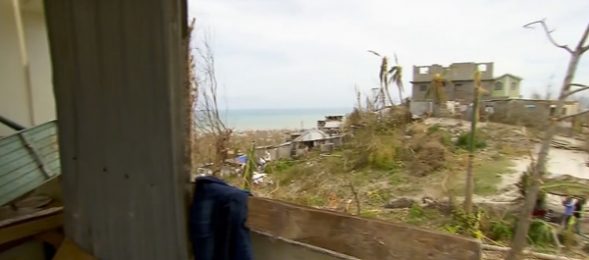Last week, Haiti was ravaged by Hurricane Matthew. As of Sunday, Haitian government officials stated the death toll was up to 1,000. Furthermore, officials are deeply concerned about famine and Cholera outbreaks, which have already plagued the nation.
If you’re interested in donating humanitarian relief and aid to Haiti or other regions affected by Hurricane Matthew, you may want to do a bit of investigating first.
Why? You may recall Wyclef Jean’s now-defunct Yele Haiti foundation as an example. The foundation was accused of misappropriating donations and shady bookkeeping after purportedly raising $16 million following the 2010 Haiti earthquake. Jean, of course, still asserts the foundation’s innocence, acknowledging mishandling, though denying any criminal wrongdoing.
So even when a charity appears honorable, it is hard to determine if your donations will actually be utilized appropriately. So how do you know where to donate?
Perhaps, one of the safer bets for your charitable dollars would be with well-known nonprofits and humanitarian groups, such as the International & American Red Cross, UNICEF, Direct Relief and Care.org. (Editor’s Note: though some of these organizations have also been accused of certain failures, each have a long, storied history of their positive works and meet several transparency measures).
Or you can also try charity watchdog companies such as CharityWatch.org and CharityNavigator.org, which grades charities.
If you’re looking for more way to safely donate to victims of Hurricane Matthew, see the story below from Credit.com, which offers additional tips for spotting charity scammers.
By Brooke Niemeyer
Hurricane Matthew is making headlines, as many Americans prepare for the heavy winds and flooding that could potentially come with the storm as it heads toward the coast.
When these storms roll in, it’s common for people to set up crowdfunding sites to help those in need. While many of these sites are legitimate, it’s important to remember that they aren’t typically vetted by reputable authorities, so they can be set up by anyone — including those who want to scam you. (We saw this type of thing happen after several other natural disasters, including Hurricane Katrina.)
“After every natural disaster, people become so generous and want to help,” H. Art Taylor, president and CEO of Better Business Bureau (BBB) Wise Giving Alliance, said in an email.
If you’re considering donating to help those who felt the effects of Hurricane Matthew, the BBB encourages you to be smart and thoughtful about how you give and offers several ways to do so. For example, if you’re giving funds online, make sure you’re careful about the links you click and where you enter personal information.
You’ll want to verify that the site is in fact what you believe it is (as scammers often create a misspelled version of a site to confuse those who may mistype their intentions) and also that it is secure (look for https in the URL). It’s also a good idea to go directly to a charity website by typing it in yourself, instead of via a link that came in an email.
According to the BBB, there are some things to think about when considering donating to a storm relief charity.
- Nearby Groups: Consider charities that have people in the areas that were affected by the storm who can actually help those who are experiencing the aftermath, as they’ll be able to help more quickly.
- Be Wary of Claims That 100% of Donations Go to Victims: For the most part, charities have fundraising and administrative costs, so claiming they won’t take a portion is not providing you with full transparency. (Remember: Even using a credit card comes with a fee, so if you’re paying with plastic, the charity will have to cover that fee or may offer the option to build your transaction fee into your donation.)
- Avoid Pressure: Reputable charities are not known for pressuring people into giving money, so if this is your experience, you may be dealing with a scammer.
- Giving Items Instead of Money: Donating food, water, clothing or some other item, while done so with the best intentions, may not always deliver the best results. Before doing so, check with the charity to find out its distribution plans and, as the BBB advises, “be wary of those who are not experienced in disaster relief assistance.”
The BBB also mentioned people should be aware of “storm chaser” scammers — those who come in after storm damage and offer “deals” to help people with repairs. It’s a good idea to do your research and verify legitimacy before hiring anyone.
If you do have to pay for repairs after the storm subsides, and you do so on a credit card, make sure you don’t charge more than you can afford, as credit card debt can be almost as damaging as the storm. You can see how any credit card debt you carry is affecting your credit by viewing a free credit report summary, updated every 14 days, on Credit.com.
BMWK, which are you favorite charitable organizations and/how do you decide what charities to donate to?
